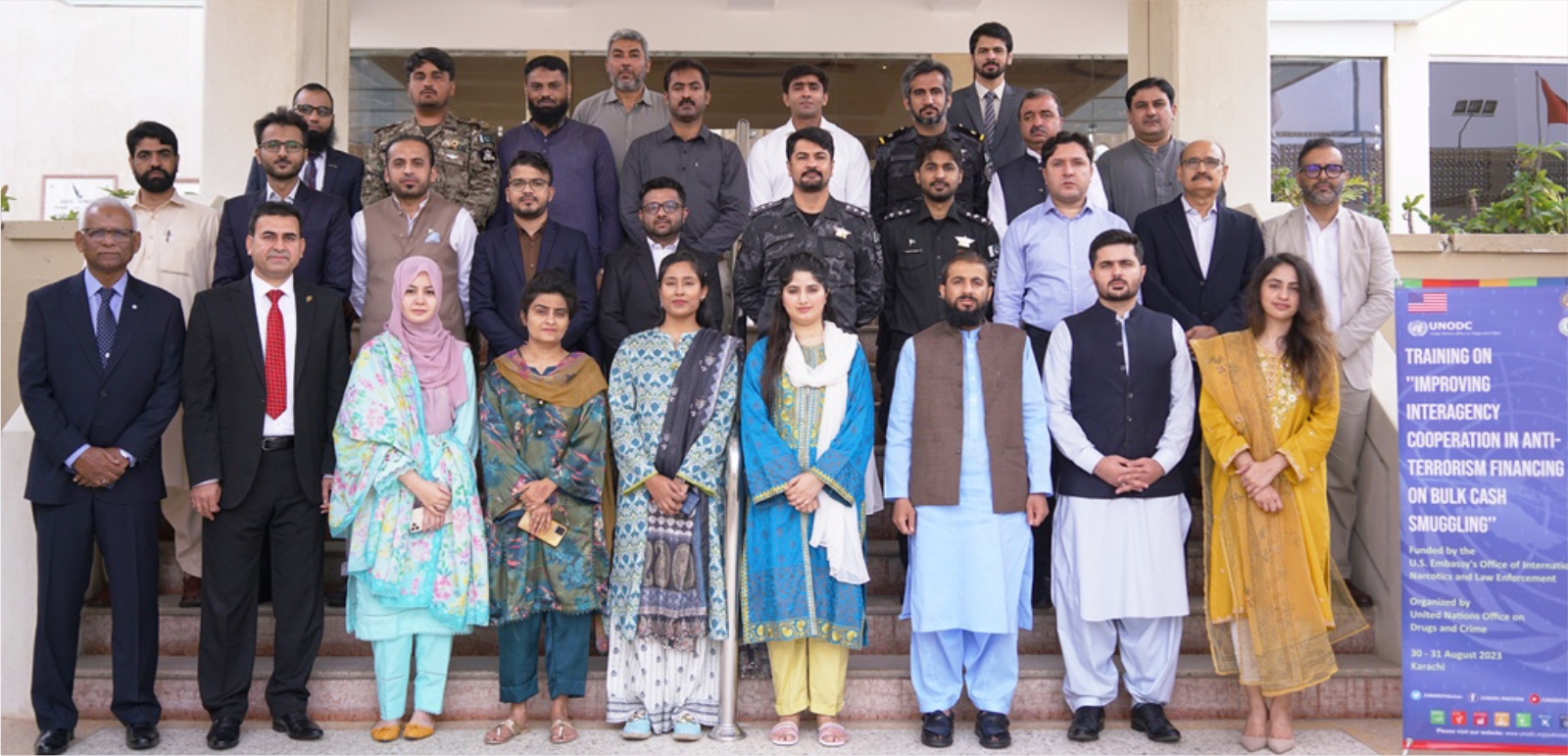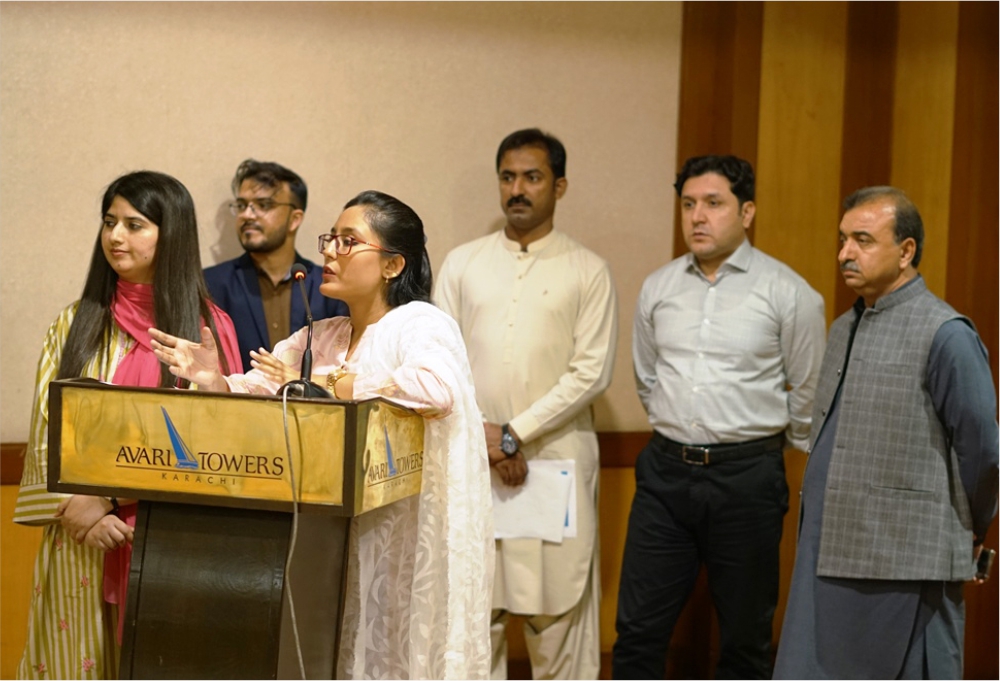
31 May 2023, Karachi – Pakistan: Terrorism Prevention Project, funded by the U.S. Embassy's Office of International Narcotics and Law Enforcement (INL), implemented by UNODC, organized two workshops on improving interagency cooperation in countering bulk cash smuggling and addressing fundraising through Non-Profit Organizations (NPOs) on May 24-25 and May 30-31, 2023, in Karachi.
A total of 35 officials (3 Females) representing Pakistan Customs, Federal Investigation Agency, Anti-Narcotics Force (ANF) and Financial Monitoring Unit (FMU) from Sindh and Balochistan province attended these workshops.
The primary objective of these workshops was to strengthen coordination and collaboration among the participating agencies in effectively combating bulk cash smuggling and detecting illicit fundraising activities associated with terrorism financing. The training provided a platform for sharing knowledge, enhancing skills, and fostering interagency partnerships to ensure a comprehensive approach to addressing these threats.
First day of the workshop commenced with opening remarks by the UNODC representative, who emphasized the purpose and significance of the joint training in combating bulk cash smuggling and fundraising through NPOs. The National Counter Terrorism Authority (NACTA) delivered a presentation highlighting the risks associated with terrorist financing through cash smuggling, fund raising through NPOs and the crucial role of interagency coordination in tackling this issue effectively.
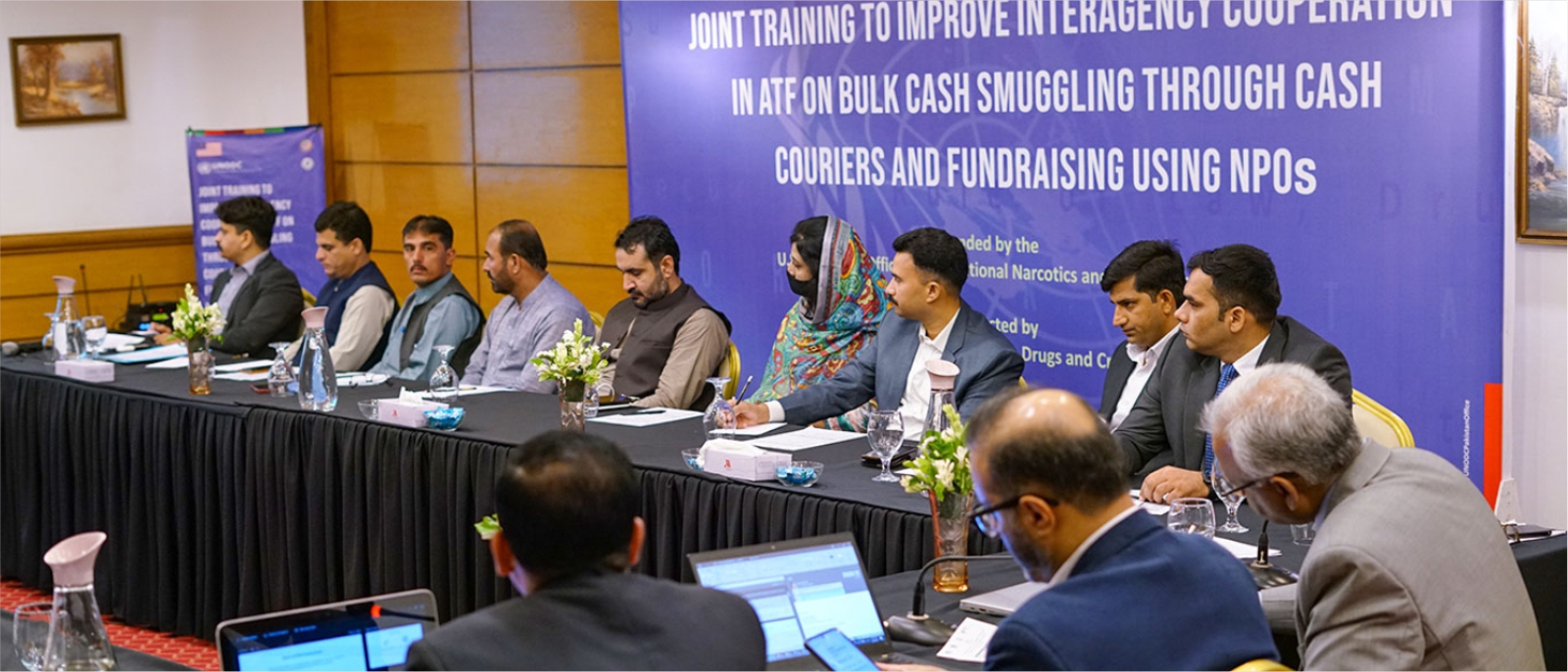
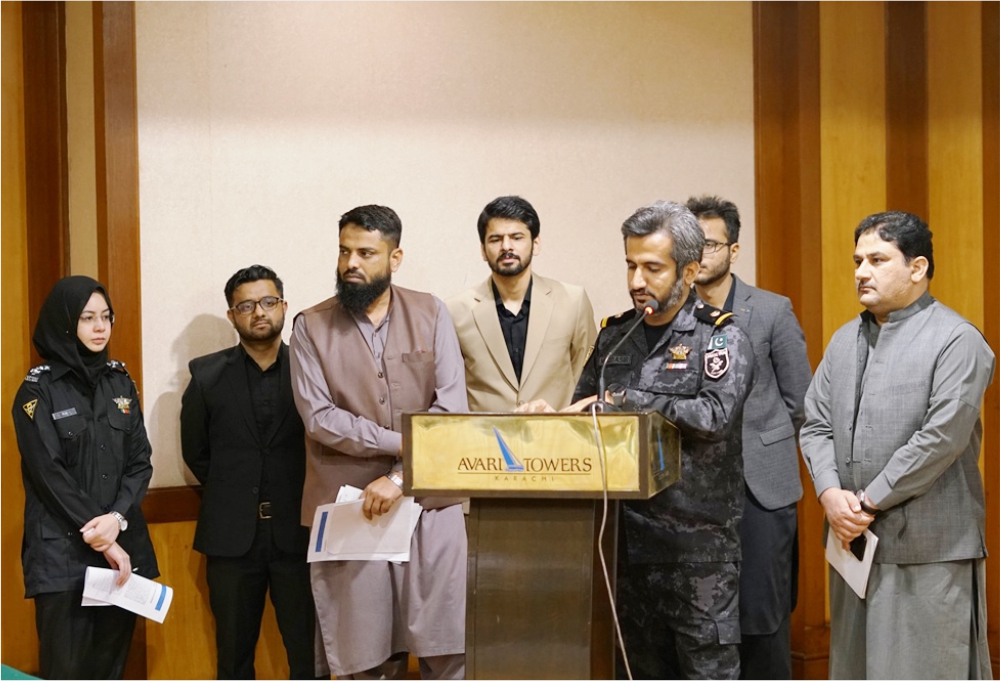
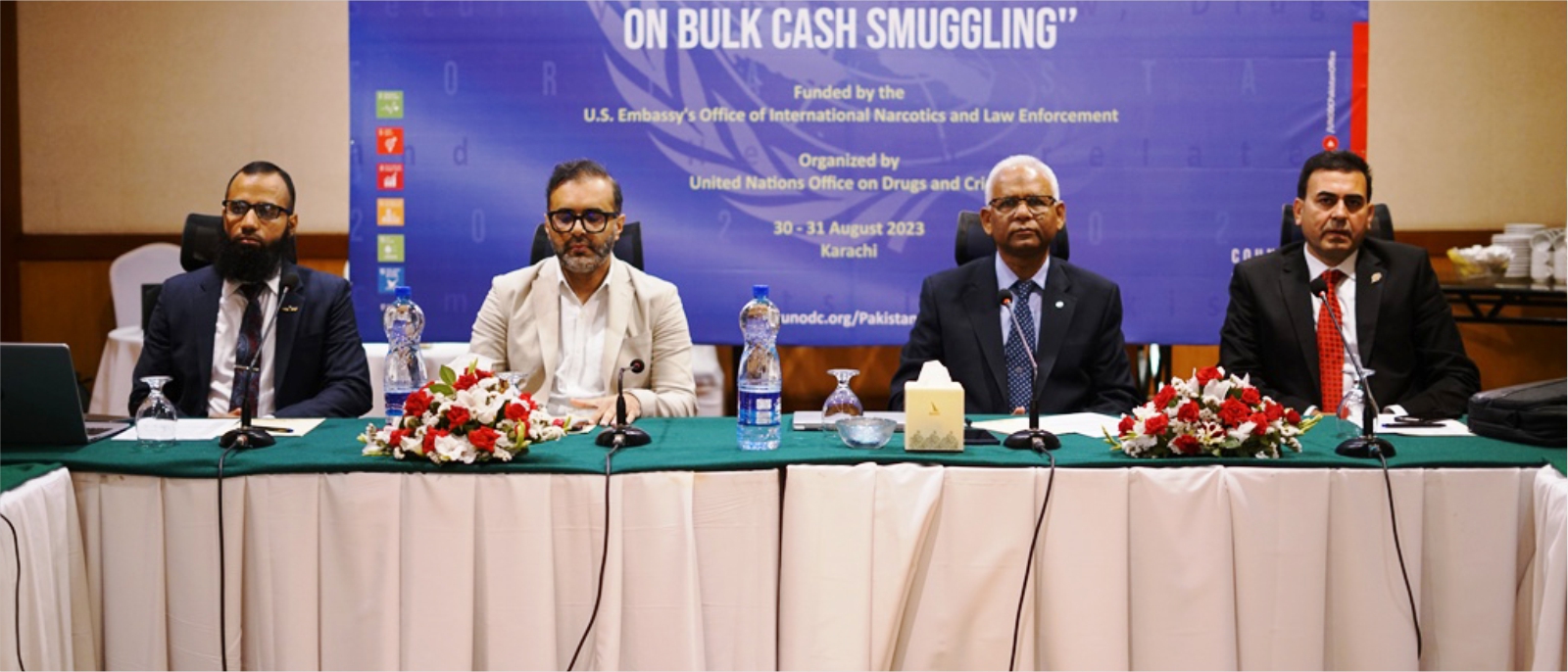
The subsequent sessions during each workshop focused on the modus operandi of bulk cash smuggling via seaports, airports, and land routes, emphasizing the pivotal roles of customs and the Federal Investigation Agency (FIA) as border agencies.
To further deepen the participants' understanding, the Financial Monitoring Unit (FMU) presented a comprehensive analysis of cash couriers, highlighting the importance of strategic assessment and analysis in identifying suspicious transactions and potential money laundering activities associated with bulk cash smuggling. The presentation also shed light on the role of FMU in facilitating interagency cooperation and information sharing to combat these illicit activities effectively.
The second day focused on the national legal framework pertaining to cash smuggling, including the Anti-Money Laundering Act and the Customs Act of 1969. Participants gained insights into the legal provisions and procedures governing cash smuggling cases, enabling them to navigate investigations and prosecutions more effectively.
Furthermore, the workshop addressed the transnational risks associated with bulk cash smuggling and the essential compliance requirements outlined by the Financial Action Task Force (FATF). Participants were familiarized with international standards and best practices in countering cash smuggling, enhancing their capabilities in aligning with global efforts to combat money laundering and terrorist financing.
A case study and group exercise provided participants with practical exposure and an opportunity to apply their knowledge and skills acquired during the training. Through collaborative discussions and problem-solving activities, participants engaged in simulated scenarios, allowing them to analyze real-world challenges and devise effective strategies to combat bulk cash smuggling and fundraising through NPOs.
The workshop concluded with closing remarks by UNODC, expressing appreciation for the active participation and commitment of the participating agencies. Certificates of completion were distributed to all participants, acknowledging their valuable contributions in enhancing interagency cooperation in the fight against bulk cash smuggling and the misuse of NPOs for terrorist financing.
